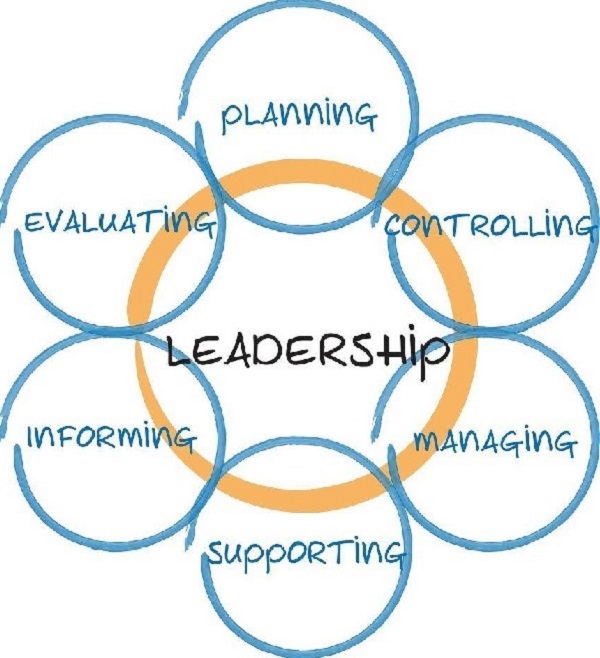“Leadership is the capacity to translate vision into reality.” – Warren G. Bennis
When you’re leading a project or a team, there are numerous factors that may affect the outcome. Leadership is a skill that gets better with time and knowledge of human behavior.

In any situation, leadership style is essential to develop. It determines how your leadership period will pan out. Leadership in accounting firms needs to be very straightforward as you’re constantly dealing with high-end clients and projects.
Therefore, this article is about how different leadership styles can have an impact on different kinds of teams and industries. Let’s go through the leadership styles that every accounting firm needs to know and then adopt the one that fits best for your company!
Different Leadership Styles
Transformational leadership
The meaning of this leadership style is reflected in the name itself; it transforms your business to make it more innovative and engaging to drive better revenue.
These are the leaders that encourage others to think out of the box. Get creative, experiment with your work to discover a process that is beneficial to the company. Moreover, transformational leaders tend to thoroughly study the business concept and add their inputs to create a transformation at a larger scale.
When to consider transformational leadership –
- Ideal for companies that are open to improve and innovate their strategy.
- Works best with teams that don’t need micromanaging.
- Keeps the team motivated with creative inputs.
Democratic leadership
A democratic leadership style, also known as participative style, is the one where every employee’s opinion matters in a decision-making process.
Democratic leadership is one of the most common styles used in companies as it makes every employee feel included in the process and provides them a chance to voice their opinions. This leadership style is ideal for a company that’s made up of smaller teams so that they can work collaboratively without any disputes.
In large-scale companies, this approach might not work out. With teams containing a large number of employees, the whole process becomes time-consuming, expensive and may lead to a decrease in productivity.
When to consider democratic leadership –
- A company with a vision to grow together and implement different strategies.
- Small scale companies with teams that can share their opinions and make informed decisions.
- Handling projects where there’s no need for a specialist.
Coach style leadership
Coach style leadership focuses on bringing out the potential of every individual working with the company. A coaching leader is a person that easily recognizes their employees’ strengths, weaknesses, and knowledge.
Here, the leader assists other team members to set bigger goals and motivates them to utilize their skills to achieve them. Leadership in accounting firms can be similar to this, as the leader can segment their team members based on their skills and assign the projects they deem fit for their employees.
For example, an offshore accounting services firm works with clients with different requirements. Here, the coach leader can train the employees to handle various kinds of accounting projects so you can cover every demographic. This could benefit the offshore accounting firm as well as its clients.
When to consider coach-style leadership –
- Working in a company that handles various clients such as offshore accounting services.
- The projects assigned are goal-oriented.
- You want to enhance the skills of your employees.
Autocratic leadership
As the term gives it away, autocratic leadership approaches the concept of “my way or the highway.” Yes, it’s all about those bossy leaders you’ve seen around in your life that you can’t forget even when you want to!
The autocratic leadership style is where fast decisions are made. The leader doesn’t consult or discuss with anyone from their team; they’re the sole person finalizing every decision. Such leaders want to see faster results, thus they only trust their opinion and sometimes their trusted people. Other than that, there’s no way you could persuade an autocratic leader to change their mind.
When to consider autocratic leadership –
- Works in a company where employees are not trained or need a lot of supervision.
- Companies that follow strict guidelines also need an autocratic leader.
- When only the leader is skilled, such as in the military, hospital, or a lab, this leadership style can work.
Visionary leadership
A leader with a vision works towards a greater cause, inspiring and implementing change along the way. When a team has a common goal, visionary leaders can provide insightful tips to the team members.
Visionary leadership is one of the most common and effective ways of working, especially in rapidly growing small organizations. This approach doesn’t come with any specifications, however, it focuses on the company goal and finds ways to achieve it.
When to consider visionary leadership –
- Small organizations that are open to major transformation.
- Resolving common issues as a whole.
- Ensures a motivated and highly productive team hence results in faster growth.
Laissez-faire or hands-off leadership
You can say that this leadership style is almost the opposite of aristocratic leadership. The term laissez-faire means “leave it alone.”
In the business context, this leadership approach is where the leader doesn’t micromanage their employees. They assign the project to individual team members and let them work on their own. This enables the leader to divert their focus onto more important projects while their employees work on the tasks assigned to them.
In the matter of leadership in accounting firms, you’ll mainly find experienced individuals. Therefore, this leadership style works perfectly for offshore accounting or any other services.
When to consider laissez-faire leadership –
- Working with highly skilled employees.
- The team members are motivated to work without any dependency.
- Gets work done faster with little to no errors.
Pacesetter leadership
When you want to get faster results, this is the way to go. Pacesetter leaders have high expectations so the company can grow faster and improve employee retention.
Pacesetter leadership style works best in a high-energized environment where the employees are ready to tackle any challenge. This leader expects faster results from their team and holds the individual accountable for the task assigned. This results in a more effective team and derives better results.
For example, leadership in accounting firms has time-constraint and expects better results. So, here a pacesetter leader can encourage team members to work more efficiently and finish their tasks in time. Such a style of leadership in accounting firms is highly beneficial for the entire company.
When to consider pacesetter leadership –
- Outsourcing companies with high-end clients such as offshore accounting
- Has skilled employees that can handle any challenging project
- A company that can provide required tools to manage the tasks and other factors
Here you can read about Business Owners: Hire a Part-time CFO & Grow your Business
Final thoughts
Any growing firm or organization needs a leader that can provide value and ensure that it grows at a rapid rate. For offshore accounting services companies and other accounting firms, it’s essential to pick a leadership style that will help them grow. Leadership styles such as pacesetter, laissez-faire, and coach-style work perfectly for accounting firms. So, find out your company’s requirements and pick the one that’s perfect for you!










































































